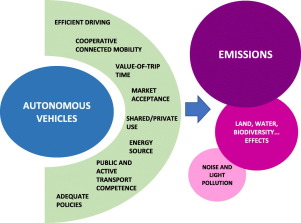The Promise of Improved Safety:
One of the most compelling reasons for the widespread adoption of autonomous vehicles is the promise of enhanced safety on our roads. Human error is a leading cause of accidents, and autonomous vehicles aim to eliminate this risk by relying on precise sensors and real-time data analysis. These vehicles can react to changing traffic conditions faster than a human driver, reducing the likelihood of accidents caused by distracted or impaired driving.
Reducing Traffic Congestion:
Traffic congestion is a major issue in many urban areas, leading to wasted time and increased pollution. Autonomous vehicles have the potential to address this problem by optimizing traffic flow. They can communicate with each other and traffic infrastructure, making decisions that result in smoother traffic patterns. This can lead to reduced congestion, shorter commute times, and lower fuel consumption.
Enhancing Accessibility:
Autonomous vehicles hold the promise of improving transportation accessibility for individuals who are unable to drive due to age, disability, or other reasons. These vehicles can provide newfound mobility and independence to people who may have previously relied on others for transportation. In addition, autonomous ride-sharing services could make transportation more affordable and convenient for everyone.
Environmental Benefits:
Reduced traffic congestion and optimized driving patterns are not only good for commuters but also for the environment. Autonomous vehicles can help lower carbon emissions by promoting fuel-efficient driving and reducing idling time. Furthermore, the development of electric autonomous vehicles can contribute to a significant reduction in greenhouse gas emissions when combined with renewable energy sources.
Challenges and Concerns:
While the potential benefits of autonomous vehicles are substantial, there are also significant challenges and concerns that need to be addressed. Cybersecurity threats, ethical dilemmas in decision-making algorithms, and the need for robust regulation are just a few of the complex issues associated with autonomous vehicles.
The Future of Autonomous Transportation:
The road to fully autonomous transportation is still under construction. However, many major players in the automotive and tech industries are investing heavily in research and development to make it a reality. Companies like Tesla, Waymo, and Uber are leading the charge, with a focus on testing and refining their autonomous driving systems.
Conclusion:
The impact of autonomous vehicles on transportation is nothing short of transformative. These vehicles have the potential to revolutionize how we move from place to place, offering improved safety, reduced traffic congestion, increased accessibility, and environmental benefits. However, the journey towards a fully autonomous transportation system is not without its challenges and concerns. It will require ongoing innovation, rigorous testing, and responsible regulation to ensure that autonomous vehicles deliver on their promise of a better future for transportation.
As we move forward, it’s essential to keep a close eye on developments in this exciting field. Autonomous vehicles are not just a technological advancement; they represent a fundamental shift in the way we interact with and navigate the world around us. The road ahead may be winding, but the destination promises a brighter and more efficient future for transportation.






